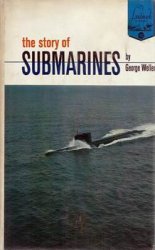Egypt’s chief export crop is cotton (not grown in ancient times). Rice, beans, fruits, wheat, vegetables, and corn are also grown. Modern Egyptian agriculture is spectacularly efficient. Food production per acre is almost the highest in the world. Since _
Delicate Digging
Before a modern Egyptologist moves a spoonful of sand, he spends years planning his proposed dig and securing permission from the Supreme Council of Antiquities. Satellite and aerial photographs, ground-penetrating radar, sonar, robotic probes, and other remote sensing equipment can explore sites without disturbing them. To minimize unnecessary digging, special drills send thin, transparent tubes into the ground, bringing back cores—long, narrow samples of the soil beneath. The cores reveal how many layers of soil are present, and if any have been disturbed.
Site work proceeds with the greatest care and patience. A site is mapped, measured, and marked. Each layer is analyzed. Nothing is moved until it has been inspected, photographed, measured, documented, and catalogued. All artifacts—from gold statues to pottery fragments—are packed and stored carefully. Archaeologists are painfully aware that objects preserved underground for millennia often crumble to dust when exposed to air and moisture. Any traces of human remains are treated with supreme care, respect, and dignity.
The dam was built, nearly all available water is used to irrigate crops.
All potential cropland is already intensively cultivated. But Egyptian food production is still not sufficient to meet the needs of its ever-growing population. In fact, Egypt imports three-quarters of the wheat it consumes.
Egypt’s population has tripled since the end of World War II, and is projected to double again by the end of the 21st century. In the early days after the dam was built, Egypt could buy enough wheat with revenues from exported cotton. But by the 1980s, Egypt had one of the highest rates of wheat import per person of any country in the world.
Egypt can no longer grow enough cotton to buy the wheat it needs, so it sells oil. But Egypt has a growing domestic demand for its own, already-depleted, oil reserves.
Egypt’s rapid population growth has also overwhelmed delivery of basic services: water supply, waste disposal, electricity, and transportation. By the early 1980s, demand for electricity already exceeded supply.
Egypt Is the Nile
After he recovered from the shock of seeing his homeland through the eyes of the soaring falcon god Horus, an ancient Egyptian viewing a satellite photograph of northeastern Africa would quickly recognize kemet. He would see iteru, the river, and along it the narrow band of lush green vegetation. He would also see deshret, the sandy, lifeless desert that the waters of the inundation never reached. And there would be the same steep, rocky cliffs that bounded his world. High on the western desert plateau, the ancient Egyptian would probably recognize the string of oases, stretched like widely-spaced green beads against the gold-red desert sands.
Although the national boundaries of the modern Arab Republic of Egypt encompass many thousands of square miles of deshret, to modern Egyptians as well as to their ancient ancestors, the narrow Nile gorge, and especially the thin green ribbon bordering the Nile, is "Egypt." Most Egyptians are still crowded into that narrow corridor. Although the Aswan High Dam has opened up many previously uninhabitable areas to cultivation and settlement, Egyptians still vote with their feet, electing to stay close to the river that has given life to their land for so long.
At night, especially when the moon is full, modern Egyptians lucky enough to own horses are fond of riding them deep into deshret. Forbidding by day, the desert by night is a magical place: cool, windy, empty, and endless. Although they glory in galloping by the light of the Bastet's eyes, modern Egyptians, like their ancient forebears, always return to their river, their homeland, their kemet.




 World History
World History









